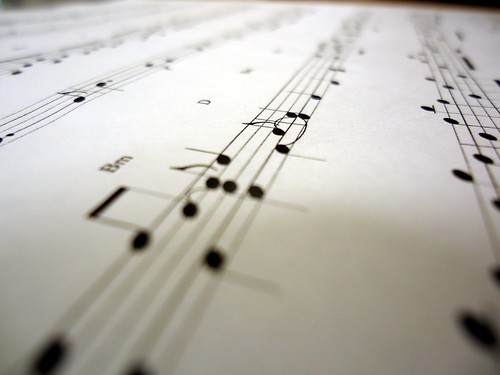And suddenly it happens. All your huge music collection, all the disks you patiently bought in years, one by one… Well from now on, in a certain sense, it is as if you could better not to buy them. As a matter of fact, if you subscribe to a service like Spotify or Rdio (that have just become available in Italy), you find yourself in front of a huge sea, a wonderful ocean of music – all open for you to explore.
Now you can listen not just to your collection, but to an extremely large archive. That probably already include all items of your collection, and much more. I know, I know. Technically speaking, there is an important difference. Your albums are… yours, you can listen to them whenever you want, while the access to this mare magnum typically cost you something. That is, around five Euro for month, or twice if you want to access it also from smartphone or tablet. Spotify actually allow you also to use the service for free, but then the streaming is annoyingly interrupted by commercials, and there are other restrictions, so that usually you get tired soon. At least, I’m already tired now.
 |
| Music can flows and never ends… (Image by Brandon Giesbrecht licensed CC) |
After a bit of testing and some oscillations between Spotify and Rdio, I chose – as someone else – to give my money to Rdio. My main reasons are listed in the following points
- Interface. The one of Rdio is clearer and cleaner in respect of the one of Spotify. Briefly, I found it more simple and enjoyable. Of course, it’s a matter of taste.
- The web. Rdio works nicely from your browser. Spotify cannot play a single note if you does not load its client.
- Albums. OK, here I have to explain. I grew up collecting albums. Vinyl records, cassettes, in a first time. Then CD and after that, mp3 collections. Anyway, I was used to think and respect the fact that the music that I love (pop/rock, jazz, classical) is logically encapsulated in albums. I understand a thing if I can examine its boundaries, the interfaces between the object and the rest of the universe. To me, boundaries of musics are defined by albums. An album is a complete work, organic, indicative of a certain age and a certain path of artistic maturation of the people involved in it (that’s also the reason I am not excited by anthologies, in passing). Now, let’s say I want to add an album in my collection, on Spotify. What can I do? I can add the songs of the album to a playlist. But it’s exactly what I do not want to do! I want to get the album itself preserving its peculiar identity! On Rdio I can add the album to my collection. The album. Without having to grow a generic playlist. This is really important, for people like me.
- Rdio does have Pink Floyd. Spotify does not have Pink Floyd. Things are, I do like much Pink Floyd.
- There are other minutiae as well… with Rdio you can use a device as a remote controller to play music in another device. You can use iPad or iPhone to remotely control the musical flow you’re playing on your desktop, for instance. Cute!
- Quality (?). Take this with a grain of salt, but it seems to me that streaming on Rdio sounds a bit more clear in respect to the one from Spotify. But it’s a subjective impression obtained after just a few tests. Maybe I’m wrong.
On the minus side: I’m aware of one thing. One important thing. There is the empirical fact that almost everyone is on Spotify, now. The social aspect is much more important, there. So, I’m sorry for my friend on Facebook, I will not be able to see what they are listening. But I feel better on Rdio.
At any rate, independently of your choice, it’s evident that we are on the threshold of an entirely new way to listen to music. It will certainly change your paradigms. When it comes to decide what to listen to, well, you can now listen to… everything. I’ve seen messages on Facebook about people wanting to hear (more or less) all the good music they have lost. This is a difficult task, since it may actually takes much time…
For me? Now, instead of listening to the Piano Sonatas by Mozart (an icon of classicity at its absolute best, trust me) as performed by one interpreter, I can choose each time a different pianist. I can appreciate the differences, I can even study them, if I want.
Quite inconceivable, few years ago.